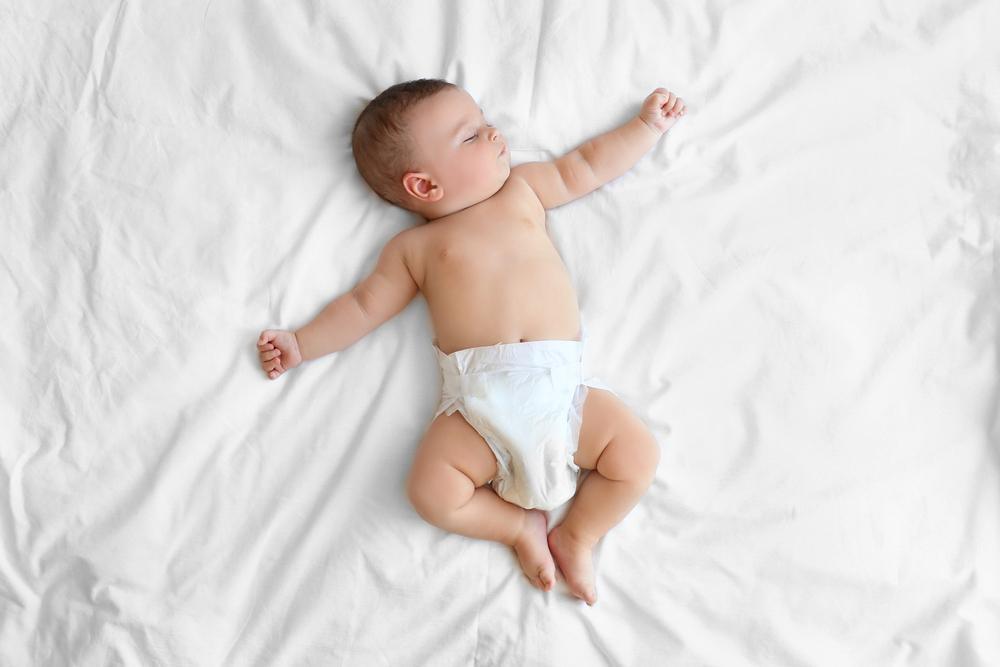Virtually every parent would wish for a consistent sleep schedule for their baby, and, let’s face it, their sanity. Babies with erratic or odd sleep schedules can disrupt an entire household and leave parents resembling zombies.
If you want to change your baby’s sleep schedule, here is some advice on how to do this and on how and how to track their progress.
You can track your baby's progress with our Video Baby Monitors.
Why Regular Sleep Habits are Important
For the parents and the rest of the household, regular sleep habits help everyone function normally. For the baby, consistent sleep helps them develop properly. Without adequate sleep, a home can come grinding to a halt, while all involved can develop physical, mental, and emotional health issues.
The Dangers of Sleep Deprivation
Sleep deprivation is not just inconvenient; it is dangerous. Not enough sleep affects judgment, agility, balance, emotional responses, and the ability to think clearly as a child or an adult. For a sleep-deprived baby, development becomes more difficult.
Studies have shown sleep deprivation is as or more dangerous than drunk driving if not treated.
Parents and Older Children
For parents, especially new parents, sleep deprivation becomes a way of life, which can negatively affect:
- Their relationship with the baby
- Their relationship with the other parent
- Their relationship with their other children
- Work relationships
- Social life
- Their health - both short and long-term
- Decision making and judgment
- Coordination and response time
While parents of newborns, particularly if it is their firstborn, expect to suffer from lack of sleep, getting the baby on a regular sleep schedule that matches the sleep schedule of everyone in the household must be a priority.
The Baby
For the baby, the ill effects of lack of sleep are just as dramatic. The most obvious effect is irritability or fussiness. That, however, is just the tip of the iceberg.
- Babies need sleep to help them grow properly
- A baby that gets enough sleep tends to be more emotionally stable
- Babies that sleep enough tend to be happier
- Babies get better care because their parents are not as exhausted
- The baby’s overall health and development are better
No matter how you look at it, a baby with a healthy sleep routine is not just happier, the entire household is happier and healthier.
What, though, do you do if your baby does not have a healthy sleep routine?
Months 1 – 3: The Baby Drives the Agenda
It is all but impossible to keep a baby awake when it is sleepy or asleep when it is awake or hungry for the first three months. Trying to do so will only aggravate the baby and frustrate you. Plus, it will not work and may make your baby sick.
Let the baby establish its rhythm and sleep habits. You can try and change them after it gets past the “eat-sleep-repeat” phase. That can happen as early as about 1 month to 3 months. In some cases, it can take longer.
Let Them Grow Into It
Likely, your child will grow into a healthier sleep routine, just because they like to be awake when the people around them are and asleep when the household is quiet. They also will have their own sleep needs, which will dictate not only when they sleep but how successful any effort to modify their behavior will likely be.
Discuss Any Actions With the Baby’s Pediatrician
While just about every pediatrician will tell you that the baby will drive the sleep schedule for the first three months, you should discuss your baby’s sleep habits with your pediatrician.
Your child’s pediatrician will know your child better than anyone, except you, the parents. They also have years of experience observing babies and know what type of sleeper your baby is likely going to be. Coordinate with them to come up with the best sleep schedule.
The Parent’s Sleep Schedule Matters
Everyone knows babies are sponges when it comes to absorbing what they observe is going on around them. That is why just about everyone has a story about a toddler that started using bad words because they heard their parents doing it. Sleep routines of the parents and others in the family are no different.
If one parent or the other is a “night owl,” while it might be great for the other parent the first three months, chances are the baby will develop a similar routine. This is especially true if the parent that likes staying up later makes noises that the baby can hear.
Create a Sleep and Awake Environment
It might be tempting to let your baby sleep anywhere they want, regardless of what is going on around them. You may also want to leave the baby in a darkened room even after it is awake. Some people advocate this to make sure the baby does not grow up to be a “picky sleeper.”
That may or may not be true, but what is true is that the baby, just like children and adults, will respond to a sleep environment. That means if you let the baby sleep anywhere, they still might develop a healthy sleep routine, but they also might not.
The Sleep Environment
If you have a space reserved for the baby to sleep and remove them from it when they awake, they will associate that space with sleeping. That will eventually influence them to get in a habit of sleeping when put in that space, which you can then use to mold their schedule.
Make sure the room can be darkened, even during the day. Use softer colors and try and create as peaceful an environment as possible. Another good idea is to make it clear to everyone else in the household that when you are putting the baby down for sleep, they are to be quiet around the room and stay out of it until the baby awakes.
The Awake Environment
Likewise, when your baby wakes up, remove them from their bedroom and employ “awake strategies” to keep them awake and occupied. Open shades, play with them, put on music, talk to them. Do whatever you must to keep them engaged for as long as possible.
Additionally, to help create that awake environment, you may want to paint your home with brighter colors as well. This is particularly true if your home is darker because the color scheme you prefer is darker. The lighter you can make the space the baby lives in, the easier it will be for them to stay awake and stimulated when you want them to be.
Let the Baby Sleep in the Same Place
As much as possible, always put the baby in their sleep environment. Do not let the baby sleep wherever they happen to fall asleep. The goal is to associate their room and crib with sleep and one of the best ways to do that is to only let them sleep in that one space when at all possible.
Move the Baby to Solid Food
Many babies awake and develop odd sleeping habits because they are hungry. When a baby begins to eat solid food, they suddenly feel full. This can help them sleep better and more regularly.
Remember to discuss any migration to solid food with your baby’s pediatrician.
Adjust their Feeding Schedule
Even if your baby is too young to switch to solid food, you can still use their diet to influence their sleep schedule. Do not let them sleep for long stretches at a time. Wake them up for feedings, including feeding them an hour or two before bed.
This will let you stretch their feeding cycle to three or four hours, which will give you a little time to catch up on your sleep.
Remove Electronic Stimulation
Just like with children and adults, babies can be affected by electronics. If you have them all around the baby, it will interfere with their ability to fall asleep. It will also make it more likely that they will not stay asleep.
If you want to influence their sleep schedule, remove all but necessary electronics from their bedroom. Try to keep the bedroom free of any unnecessary stimuli. This will further create that “sleep environment”
Develop a Sleep Schedule
As soon as you can, create a “wake up” time and do not deviate from it. Even if your baby was awake most of the night, try and keep them on that basic schedule, and most importantly, wake them up on schedule. Neither you nor your baby should sleep in.
This will accomplish two things:
- They will be sleepy when it is time to nap or sleep for the night
- They will stay on the same sleep schedule
Create a Quiet Space
Whether it is the bedroom or a separate sleeping area, it is vital to create a distraction-free space for the baby to fall asleep and stay asleep.
This means setting aside a sleeping area that no one but the person putting the baby in his or her crib is allowed to enter or stay in. If it is not convenient to always take the baby to the bedroom, a separate space needs to be created where the baby can just sleep.
As discussed, babies are sponges. They absorb everything and are constantly learning from those around them. Plus, they love to see, be held, and entertained by loving family members. That bonding time is vital for growth, but it is also a major distraction for the baby when it is time to sleep.
Children and adults that play with the baby keep the baby from sleeping. The average newborn sleeps 14 to 17 hours a day and the average infant up to 15 hours a day. The more time the baby is distracted by family members and other stimuli, the less time they are sleeping and the more difficult it will be to get them on a regular sleep routine.
Cut Down on Naps
For the first three months, you are at the mercy of when your child needs to sleep. After that, however, you can mold their sleeping habits a little. You do not want to resort to sleep deprivation, but you can increase the consolidated time your baby sleeps by cutting down on their napping periods.
The balance in this equation is how much time do you cut off of napping? Much of this is dependent on how much your baby naps on average. If they only get in “cat naps” for a few minutes at a time, you do not want to cut into that sleep time. If, however, they nap for hours at a time, you can wake them a bit earlier and they will sleep longer at night.
Your baby will nap as needed until about 18 months. After that, they will drop to one, or maybe two naps a day. At this point, shaving off a few minutes of each nap is easy.
Exercise is Key
Do you know how tired you feel when you start a new exercise routine or start walking daily after not doing that for a while? Your baby experiences the same thing. The more you exercise them, the more they will tire and the more soundly they will sleep.
That does not mean you need to put your baby on an exercise regimen. Just play with them regularly, keep them entertained and engaged and they will tire. If you focus this attention on mid to late afternoons, by early evening, they will be ready to sleep.
Change Baby’s Sleep Pattern from Day to Night
Some babies will sleep through, but their sleep patterns are the issue. They sleep when everyone is awake and are awake for a good portion of when everyone else is trying to sleep. Here are some ideas to try and reverse that or at least get it moving in the right direction.
Go Outside
The sunlight helps set a person’s circadian rhythm. It prompts people to be awake during the day, which leaves them ready for sleep when the sun goes down. Taking the baby outside for a walk or to play can help set the rhythm to being awake and asleep when it is time.
In addition, fresh air and exercise are always good for the health of the baby, but they can also tire them out. This can help the baby be ready for sleep at night.
White Noise and Calming Movement
Like adults, white noise and gentle environments can help put a baby to sleep. The calmer the tone, the more relaxed the baby will be and that means they will fall into being ready for sleep sooner. Swings, slings, swaddling, and using white noise to set the right environment are all great ideas to help get the baby in the mood to go to sleep.
You can play white noise to your little one with our video baby monitors.
Food Choices Play a Role
We joke about kids on candy bouncing off the walls, but your baby or infant is not different. Stimulants like sugar, chocolate, and caffeine are all potential sleep-breakers for your baby. They are also ingredients in a lot of food. If you do give them any of those, make sure to never do it around bedtime and control how much they eat.





